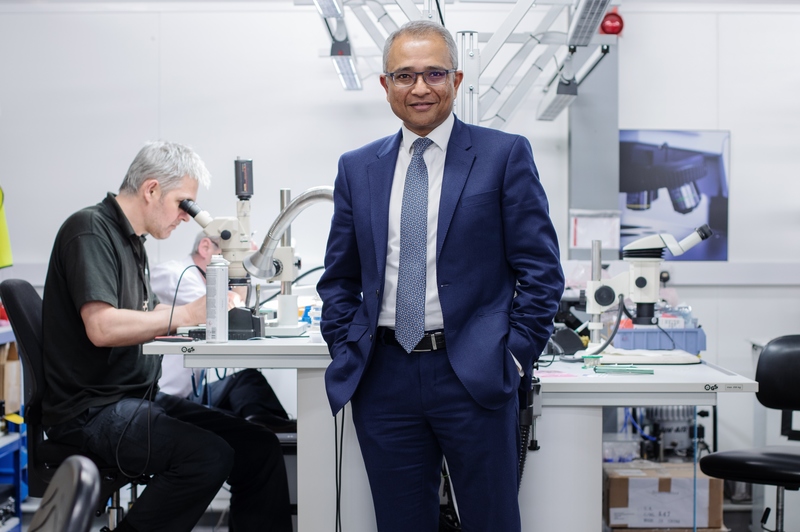Kromek
Research is taking diagnostic tools to the next level
Dr Arnab Basu, chief executive of Kromek Group plc
Throughout its evolutionary journey, humankind has risen to meet the tide of challenges faced by all species, reaching the top of the food chain. We continue to battle emerging challenges – increasingly using technology to deal with them. Medical difficulties are no exception.
Partly a consequence of improved diagnostic tools, the number of cancer diagnoses has accelerated in recent years, affecting millions of people around the world and causing immeasurable physical and emotional pain. The thought of losing someone to this insidious disease is heart-wrenching, and the impact it has on the lives of those affected is immeasurable. The sheer scale of the problem is overwhelming, and it's hard to imagine a future where we won't have to grapple with its devastating effects.
Albert Salomon, an early pioneer of the application of x-ray, performed what are considered the first ‘mammograms’ in 1913. In 1988, 75 years later, routine mammograms became the first line of defence in the fight against the pernicious disease, breast cancer.
Breast cancer is the most common cancer in women worldwide, with more than two million new cases diagnosed in 2020 alone. While early detection through mammography screening has been proven to be effective, there are still limitations to this method. One major drawback is the fact that traditional mammography has a relatively low sensitivity in women with dense breast tissue. Up to 40 per cent of women have dense breast tissue, which can make it more difficult to detect cancerous lesions on a mammogram. Additionally, early studies indicate that women with dense breast tissues are at higher risk of breast cancer – they are both more susceptible to the disease and more difficult to diagnose.
In March this year, the United States Food and Drug Administration (FDA) has set out new requirements that requires women receive a complementary screening test in order to be notified of their breast density in addition to mammography as part of the cancer diagnostic regime. This enables the women to have access to the right screening techniques appropriate for their needs.
Molecular breast imaging (MBI) which is approved by the FDA is one such technique which offers a more appropriate solution and is already being used in the United States; it involves a radio tracer, designed specifically for cancer detection, being injected into the patient's bloodstream. It accumulates in cancerous cells, which are detected by a specialised camera that creates an accurate image of the site of accumulation indicating cancer growth.
MBI has the potential to revolutionise breast cancer screening for women with dense breast tissue, becoming a staple tool in the early diagnosis of breast cancers – putting those women with dense breast tissue on an equal footing with those for whom conventional mammography is already an effective diagnostic tool. Data from Cancer Research UK show that when breast cancer is diagnosed at its earliest stage, almost all (98 per cent) people will survive for five years or more, compared with around 1 in 4 (26 per cent) people when the disease is diagnosed at the latest stage, so it’s vital that every tool is appropriately applied in screening regimes.
It is with great pride, therefore, that I can share news of the ground-breaking research that is currently taking place in Newcastle in this field. This is thanks to a partnership between organisations including my own company, Kromek, Newcastle Upon Tyne Hospitals, and Newcastle University, and was funded by government agency, Innovate UK.
Our North East partnership is developing refinements of exiting MBI technology, to make it more accessible to wider patient groups. We are currently developing equipment needed to begin clinical trials, which will evaluate the safety and effectiveness of our new imaging system.
Of course, our research is not limited to breast cancer screening. Kromek's radiation detection technology has a wide range of medical applications, which include other cancers, heart disease and neurological problems.
Building on the work started more than 100 years ago in Berlin, right here, in the North East, our pioneering research partnership is on the cusp of contributing to this new diagnostic tool which could be pivotal in saving 1000s more lives, world-wide, every year.
Let us stand in solidarity and fight against cancer with every fibre of our being.
back to Kromek
